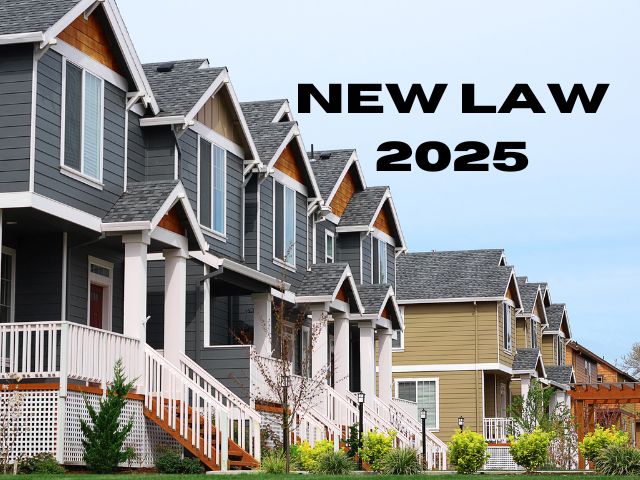Starting January 1, 2025, all rental agreements in Colorado will have to include important statements. These statements must be in bold, twelve-point type. They will cover tenants’ rights to safe and healthy housing.
This is a big change to the state’s Warranty of Habitability law. Landlords and property managers need to get ready for these updates.
What is the Warranty of Habitability?
The implied warranty of habitability is a law in Colorado. It makes sure rental homes are safe and healthy. This rule applies to all tenants, even without a written lease. It requires landlords to provide basic things like running water and clean areas.
Warranty of Habitability in Colorado
In Colorado, the Warranty of Habitability law is strict. It says almost every rental home must be safe and healthy. Landlords must keep their properties up to code. If they don’t, the home might not be fit for living.
Examples of Conditions that Make a Property Uninhabitable
- Mold associated with dampness
- Non-functioning appliances
- Lack of waterproofing
- Inadequate electrical lighting
- Issues with ventilation, fire exits, and elevator functionality for disabled tenants
The law also covers gas issues. It says landlords must fix problems with gas pipes and stoves. Tenants should be told if there’s been radon in their home.
Key Changes Effective January 1, 2025
Starting January 1, 2025, landlords in Colorado must make sure their rental properties are safe and livable. They need to add specific statements to rental agreements and online portals. These statements will talk about tenant rights and how to report bad living conditions.
Mandatory Notification Posting for Online Tenant Portals
Landlords must post these statements in English and Spanish. They must use at least 12-point, bold-faced type. This ensures tenants know their rights and how to report any problems.
Why This Matters
By telling tenants about their rights and how to report issues, landlords can fix problems fast. This keeps tenants safe and healthy. It also helps landlords follow the new rules of the Warranty of Habitability Act.
Responsibilities of Landlords Under the Act
The updated Warranty of Habitability in Colorado has big rules for landlords. They must keep their rental properties safe and habitable. Landlords need to fix any problems that could make a property unfit for living.
Overview of Landlord Duties to Maintain Rental Properties
Now, landlords must act fast when tenants report problems. They have 24 hours for urgent issues and 72 hours for less urgent ones. After that, they must start fixing the problems quickly.
They have to solve urgent problems in 7 days and less urgent ones in 14 days. Landlords also need to keep records of all talks and actions about habitability issues.
Steps Landlords Should Take to Comply with the New Notification Requirements
- Update rental agreements to include a statement in English and Spanish, in at least twelve-point, bold-faced type, informing tenants of their rights under the Warranty of Habitability and providing an address for delivering written notice of uninhabitable conditions.
- Establish clear and accessible communication channels for tenants to report issues, such as dedicated online portals or maintenance hotlines.
- Develop and implement a comprehensive maintenance plan to proactively address potential habitability concerns.
- Train property management staff on the new requirements and procedures for responding to tenant complaints in a timely manner.
- Maintain detailed records of all tenant notifications, maintenance activities, and remedial actions taken to address habitability issues.
By following these steps, landlords can meet the new Warranty of Habitability rules. This ensures their tenants live in safe and healthy conditions.
Rights and Responsibilities of Tenants
In Colorado, tenants have clear rights and duties to keep rental homes safe and healthy. You have the right to a home that is safe and meets basic needs. This includes access to utilities, protection from the weather, and working appliances.
Rights of Tenants under the Warranty of Habitability
Tenants can tell their landlords about any problems with the home. They can use phone calls, emails, or texts. Landlords must fix emergency issues in 24 hours and other problems in 72 hours.
Tenants are also protected from unfair actions by landlords. This includes not raising rent or ending leases unfairly because they spoke up about problems.
Tenant Responsibilities
- Keep the rental unit clean and sanitary, properly dispose of waste, and use utilities responsibly.
- Avoid disturbing neighbors and respect the quiet enjoyment of the property.
- Promptly notify the landlord in writing about any habitability issues that need to be addressed.
- Cooperate with the landlord during necessary repairs and maintenance.
By knowing their rights and doing their part, tenants and landlords can work together. This ensures homes meet housing code violations and tenant rights standards. Together, they create a safe and comfortable place to live.
Consequences of Non-Compliance
Landlords and tenants in Colorado need to know the legal outcomes of not following the state’s updated Warranty of Habitability law. Not meeting the new standards can lead to big penalties for both sides.
For Landlords
Landlords who ignore housing code violations or don’t keep their properties up to standard may face legal trouble. This includes claims for damages from tenants. The new law says landlords failed if problems last 7 or 14 days after a tenant notifies them.
Tenants can now defend against eviction or rent collection if landlords don’t meet their duties. This means landlords can’t kick out a tenant or get unpaid rent if they don’t follow the law.
For Tenants
- If tenants don’t take care of the property or cause damage on purpose, they might get kicked out or have to pay for it.
- But, damage from domestic violence or related issues isn’t the tenant’s fault. It can’t be used to evict them.
The updated Warranty of Habitability law in Colorado tries to balance the rights and duties of landlords and tenants. The goal is to make sure all rental properties are safe and livable.
Conclusion
The updated Colorado Warranty of Habitability law has made big changes. It now gives tenants more protection and makes it clear what landlords must do. This law aims to make living conditions safer and healthier for renters in Colorado.
As the colorado warranty of habitability keeps changing, it’s important for both tenants and landlords to know their rights. This law is a big step towards making sure renters in Colorado are well taken care of.
The new law might be a bit tough for landlords and property managers. But the main goal is to find a fair balance for everyone. By working together and following the new rules, landlords and tenants can help make the rental market better in Colorado.
Source Links
- https://www.coloradorpm.com/warranty-of-habitability-updated-2024/ - Warranty of Habitability (Updated 2024)
- https://leg.colorado.gov/bills/sb24-094 - Safe Housing for Residential Tenants
- https://www.coloradolegalservices.org/sites/coloradolegalservices.org/files/2024-08/Warranty of Habitability 2024.pdf - PDF
- https://www.volpelawllc.com/what-are-the-new-warranty-of-habitability-laws-in-colorado/ - What are the New Warranty of Habitability Laws in Colorado? - Volpe Law LLC
- https://www.rentecdirect.com/blog/industry-news-new-colorado-habitability-laws-for-rentals/?srsltid=AfmBOoo3QnVrJFjvDnMO7zDcOkVOAIkD_Luk3f-NXRruCe-ZdTtarPP- - Industry News | New Colorado Habitability Laws for Rentals
- https://www.jdsupra.com/legalnews/2024-legislative-updates-new-landlord-7490679/ - 2024 Legislative Updates: New Landlord-Tenant Laws in Colorado | JD Supra
- https://www.steadily.com/blog/mid-term-rental-laws-regulations-colorado - Midterm Rental Laws and Regulations In Colorado - 2025
- https://www.rentecdirect.com/blog/industry-news-new-colorado-habitability-laws-for-rentals/?srsltid=AfmBOoorPPoupmdzDzXyKfJWESSvO7RGt9BFUtXfE726mlg3Yobx7-rz - Industry News | New Colorado Habitability Laws for Rentals
- https://www.cityofgolden.gov/community/housing/rental_habitability.php - Rental Habitability
- https://leg.colorado.gov/sites/default/files/documents/2024A/bills/2024a_094_rev.pdf - D:\dist ext94_rev.txt
- https://www.ceglianlaw.com/blog/new-habitability-law-with-deadlines/ - New Colorado Habitability Laws & Deadlines | Ceglian Law
- https://bhgrlaw.com/2024/06/21/2024-changes-to-colorados-residential-landlord-tenant-laws/ - 2024 Changes To Colorado’s Residential Landlord-Tenant Laws
- https://realtybiznews.com/colorado-warranty-of-habitability-just-grew-teeth/98781522/ - Colorado Warranty of Habitability Just Grew Teeth
- https://coloradosun.com/2024/04/10/warranty-of-habitability/ - Colorado lawmakers approve bill to require landlords to complete serious repairs faster
- https://www.cohousedems.com/news/joint-release:-signed!-safe-housing-for-residential-tenants-bill-becomes-law - JOINT RELEASE: SIGNED! Safe Housing for Residential Tenants Bill Becomes Law



